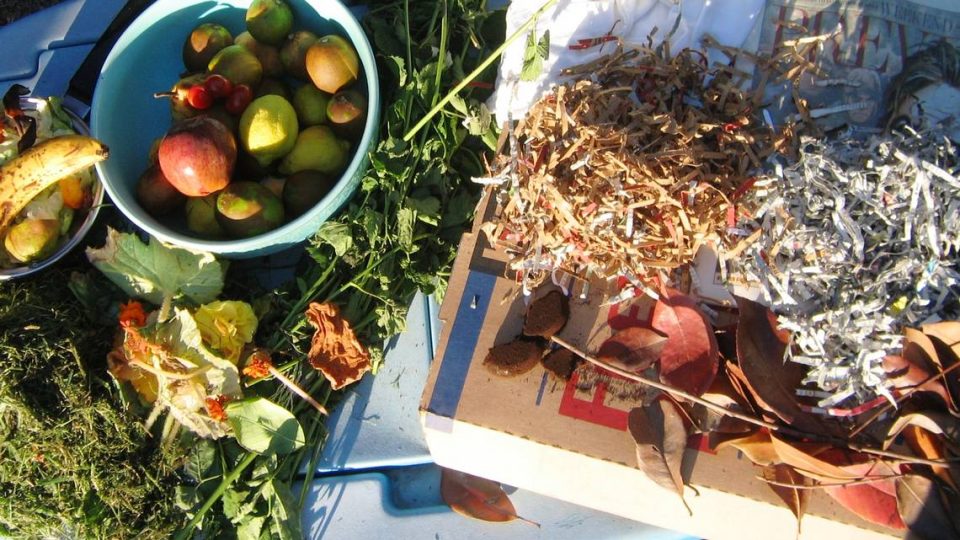Never toss your dated veggies and fruit. They belong in the compost bin.
Courtesy Johnson county Extension
Composting can be rewarding, but challenges may arise. All gardeners know the value of compost as the best material to combat and amend our heavy clay soils. Compost is a rich organic matter that loosens clay and improves soil aeration, as well as water holding capacity. Just as importantly, it feeds the diverse beneficial life teeming in our soils. The bottom line is compost helps enhance and build healthy soil.
Composting is a natural process that happens every day in nature. The compost pile is alive and full of microscopic organisms feeding on plant debris. This process is constantly working behind the scenes, slowly breaking down plant and animal debris. Home composting can become more complicated as we attempt to control and speed up the process. When we hurry along the process is where challenges might arise. Providing the correct environment to promote organism growth facilitates the process. They need what we need: oxygen, water and food.
Food is more than the debris. It’s a mix of carbon, the dried and brown materials, and nitrogen, which tend to be moist and green. We are likely to have plenty of carbon rich browns but few nitrogen rich greens. Without the greens the process slows.
Fall leaves and dried woody stems are the most common materials available to us to compost. Fresh, moist, green plant materials are limited. The challenge is to adequately supplement the lack of nitrogen greens to feed the appetite of the decomposers. Simply put, limited nitrogen slows the process.
Nitrogen can be easily added to the compost pile by adding and mixing composted manure-based fertilizers with the browns. The other option is to toss in a few handfuls of garden fertilizer containing nitrogen. This source may not be organic but once it dissolves in water the nitrogen is released and available for consumption.
Another challenge is moisture management. A highly functioning compost bin should have the moisture content of a damp sponge. Dried materials are extremely slow to break down into compost. Watering the compost bin can accelerate the process.
Ideally the material should be watered when you add it to the bin. When you water at the same time you add new material, you ensure moisture is within the bin from top to bottom. Once the materials dry out it can be difficult to rewet organic matter, as the moisture often runs off instead of soaking in. As the compost progresses the pile can be turned every few weeks, giving us another opportunity to add more nitrogen and water. Adding while turning mixes the needed food and water throughout the pile, which speeds up the process.
Oxygen is rarely lacking in the compost bin. It is trapped in the small spaces and pores in and around the materials. Turning the compost materials helps to replenish and revitalize needed oxygen as it fills the small openings and holes.
No one will ever fail at composting. It will happen naturally. We often feel like a failure because of how long it takes to harvest the rich organic matter. My ah-ha moment was realizing the compost bin is alive, not just full of dead plant debris. Just like us, the decomposers need food, water and oxygen. When we provide the essential elements, and some patience, we are on track to have a finished batch of prized compost that will enrich our garden soils.
Dennis Patton is a horticulture agent with Kansas State University Research and Extension. Have a question for him or other university extension experts? Email them to [email protected].
This story was originally published April 29, 2022 5:00 AM.


